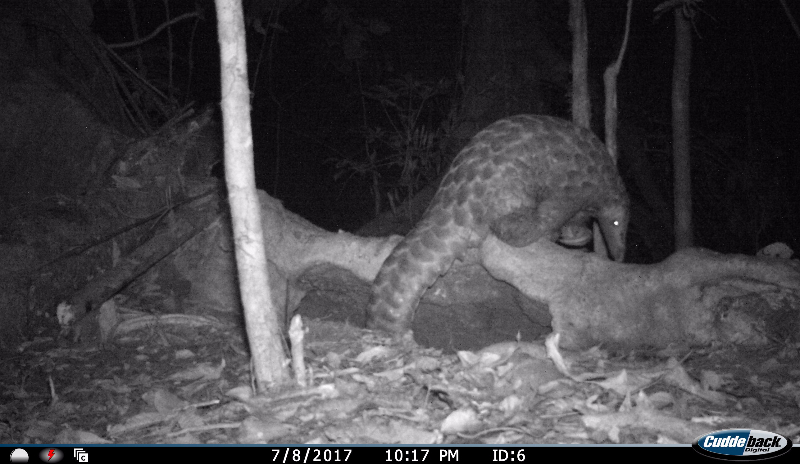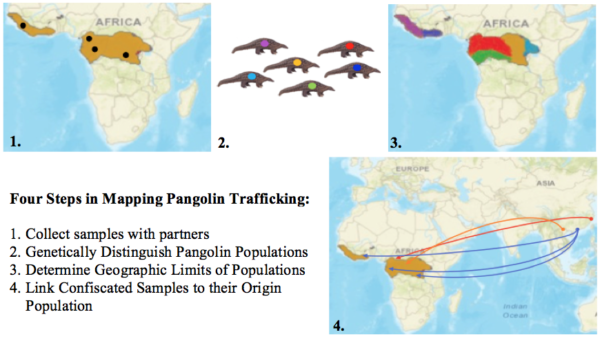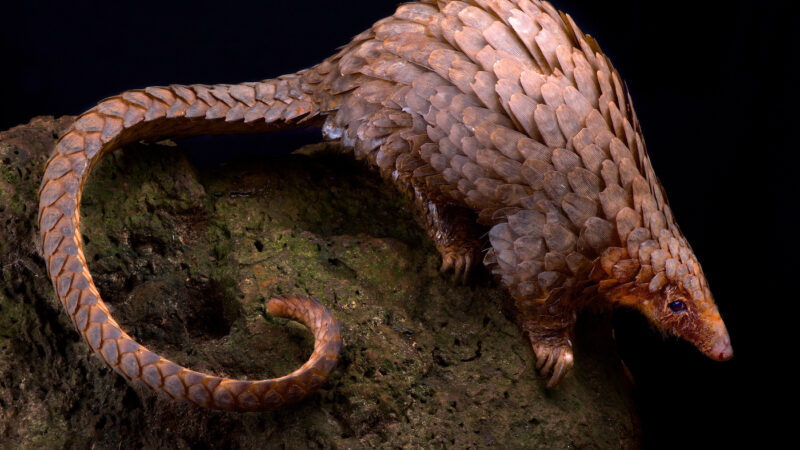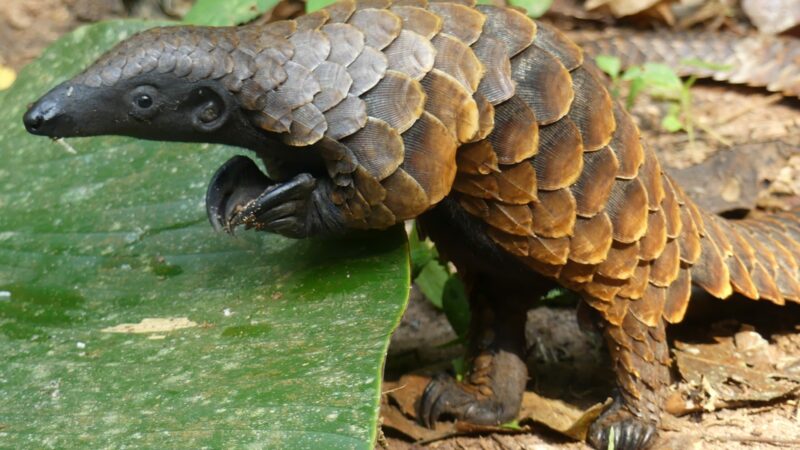
Pangolin Trafficking Project
This project aims to answer key questions about the natural history and conservation requirements of giant pangolins, one of the world’s most trafficked animals.
Comprehensive monitoring of illicit wildlife trafficking in Africa is difficult and expensive because the subcontinent is vast, has limited infrastructure, and has pockets of insecurity. One particularly challenging hurdle stems from the inability to determine where illegally poached animals originate. To address this, UCLA and the University of Hong Kong recently received funding to combine newly-developed genetics approaches, network monitoring, and existing samples to build an origin-to-destination tracking system for giant pangolins trafficked from sub-Saharan Africa to Asia.

The ultimate goal of this work is to determine where African pangolins and their products are harvested, amassed, transported, and delivered. To meet this goal, we hope to collaborate with other researchers and groups working on Central African pangolins. Specifically, we seek:
- Groups who have collected or will be collecting geo-referenced pangolin samples in any Central or West African countries. These can be invasive (blood draws, blood dots) or non-invasive (scales, hair, or oral-fecal swabs) samples,
- Partnerships with people working on pangolin ecology, biology, and conservation in Central Africa, Europe, or Asia. We strongly believe that these partnerships will be invaluable in determining the full trafficking routes of illegally harvested pangolins from their origins
If you or any researchers, managers, or groups you know work with pangolins and would like to be part of our work to help combat illegal trafficking, please contact Virginia Zaunbrecher (zaunbrecher@ucla.edu) or Ryan Harrigan (iluvsa@ucla.edu), and thank you for your interest!
Partners: UCLA, Congo Basin Institute, The University of Hong Kong


